Throughout your puppy’s life, you will notice several behavioral changes. Knowing how to handle your puppy at each growth stage can help mold your puppy into a lifetime family member. To have a well-adjusted and social dog, you must guarantee that his requirements are satisfied at all stages of growth. In this article, we will discuss puppy behavior stages and what to expect.
Developmental Stages of a Puppy
There are five development phases that puppies go through. However, puppies must develop at their rate, so the phases and age periods may vary.
Stage 1: Neonatal Period (between 0 and 2 weeks)
The neonatal stage of puppy development starts at birth. Puppies at this age have just the senses of taste and touch and are entirely reliant on their mother.
Stage 2: Transitional Period (two to four weeks)
Sensory development continues with the senses of hearing and smell. Puppy teeth begin to emerge, and their eyes begin to open. It is also around this age that your puppy’s personality begins to emerge. Puppies will engage with their littermates by wagging their tails, standing, walking a bit, and barking.
Stage 3: Socialization Period (3–12 weeks)
The socialization period is the most crucial time in the growth of a puppy. Out of all the critical stages of puppy development, socialization may be the most critical. It is important to understand this period since most new parents adopt their puppies between 7 and 12 weeks of age. During this time, changes begin to occur at a rapid pace.
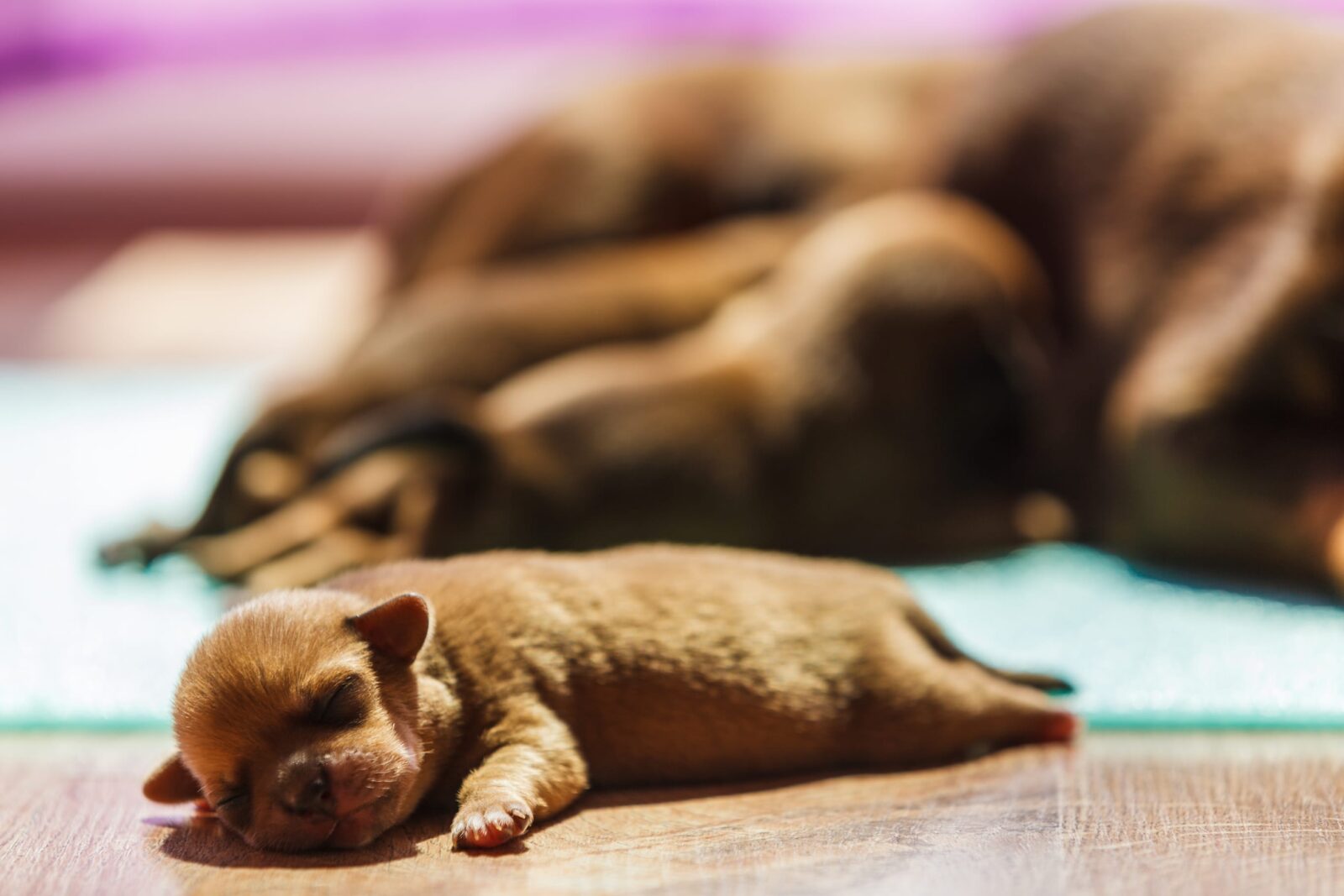
Puppies begin to become aware of their environment and form relationships with people between 3 and 5 weeks. During this time, puppies become acquainted with everyday home noises such as TVs, vacuum cleaners, telephones, and so on.
Puppies at this age are learning to interact with one another and begin to play. They are also developing social skills and determining rank within their pack. During this time, they begin to become more interested in their surroundings. Additionally, they also begin the nipping behavior, which develops when they practice biting with their mother and littermates.
When a puppy reaches between 7-9 weeks old, they can use all of their senses and are ready to leave their mother.
Taking Your Puppy Home During Socialization Period
When a puppy is old enough to go to its new home, it is amidst the socialization stage. As a result, you must expose your puppy to as many different canines, people, things, and environments as possible. However, this type of exposure should be in a manner that you control to ensure your puppy’s safety.
For a multitude of reasons, now is an excellent time to begin crate training. Finally, puppies are old enough to be left alone while avoiding separation anxiety and begin house training.
Puppy responses to objects become considerably more consistent throughout this stage of development and should be approachable and friendly to new visitors or strangers. However, they will also continue to practice their biting abilities throughout this period! Therefore, it is critical to understand how to regulate this behavior from an early age. You may also notice that they are more interested and will want to explore their surroundings more. Prepare for this by keeping your dog nearby and leashed.
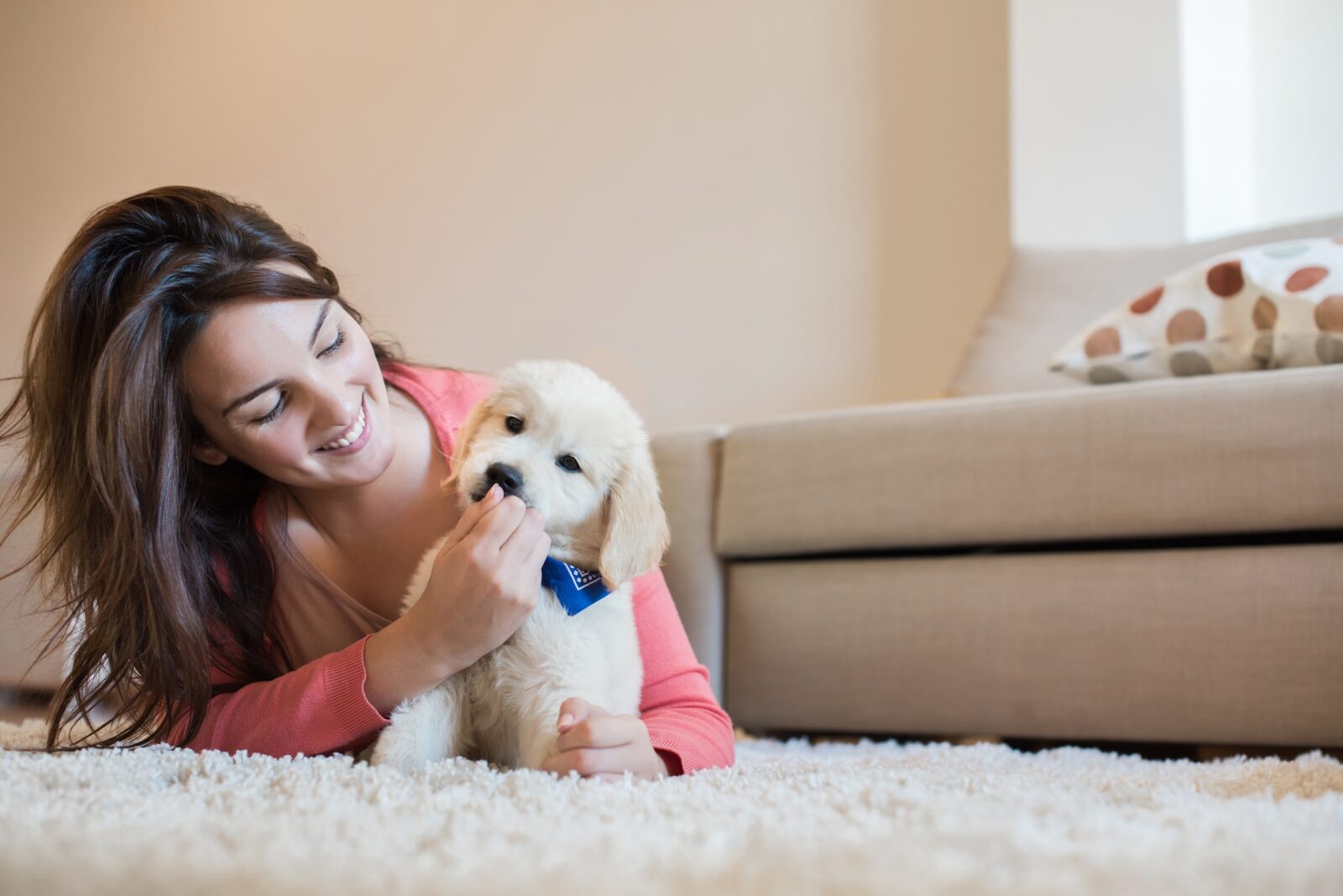
Puppy Behavior Stage 4: Testing Period (three to six months)
During the testing stage, your puppy will begin to push the boundaries of its environment. They will push their owners and other animals to their limits. Many mature canines will begin to enforce etiquette at this age. During this time, problematic behaviors may begin to emerge. If you haven’t already, get your puppy started on a training program. It’s fantastic to locate a solid positive training session, but you also need to practice at home on a regular (daily) basis.
Your puppy will be teething during a couple different puppy behavior stages including the testing period, and chewing is a frequent side effect. Before your dog starts chewing on your furniture, make the following adjustments in your home:
- First, never leave your puppy unattended.
- Second, make sure your puppy has toys to chew on rather than your furniture.
- Third, consider using all-natural products that deter your puppy from chewing on anything other than his toys.
- Lastly, if your puppy seems uncomfortable during teething, soak a cloth in sodium-free chicken stock and then freeze it. You can give your puppy the frozen chicken stock cloth to chew on to help alleviate sore gums. When the top fangs or canines appear, the teething phase is typically complete. Puppies usually get their canines around six months of age.
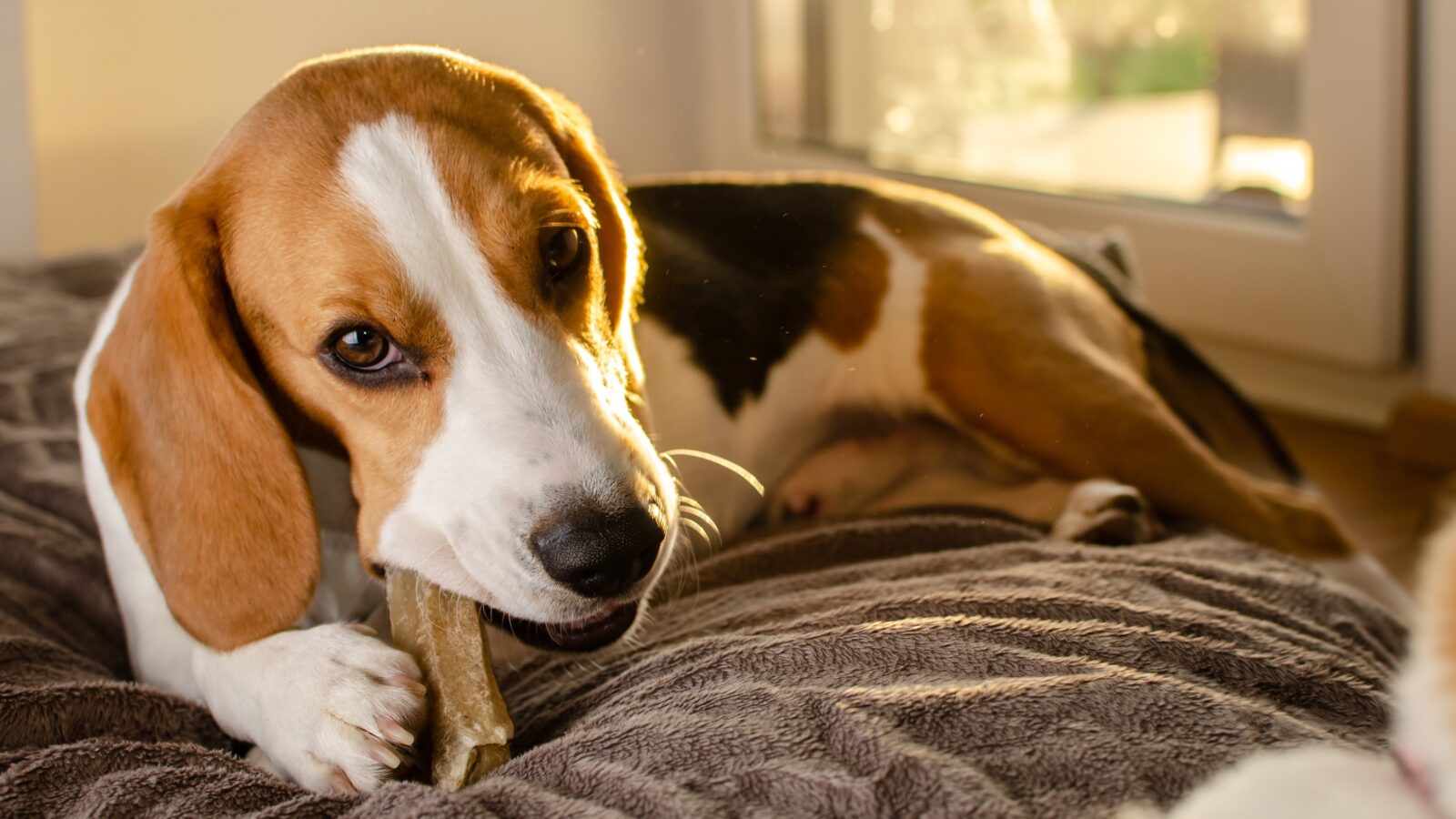
Stage 5: Adolescence (6–18 months)
Adolescence is the most challenging stage of a puppy’s growth. Many dog owners refer to this stage as the puppy rebellious stage. Your adorable puppy is maturing and will begin to produce hormones, which may cause behavioral changes. In addition, adolescence begins significantly sooner in dogs than in humans; it can begin as early as a few months old for tiny breeds old, while bigger dogs begin at nine or ten months of age. Finally, adolescence lasts until a dog is two or three years old in large breeds, with smaller dogs attaining maturity at around 18 months—the slower the growth, the bigger the dog.
Puberty Symptoms in Dogs
Below are some of the signs that your puppy is in puberty:
Males
- The testicles’ drop
- They begin to mark their territory
- When peeing, they raise their leg
- Temperament may seem less friendly
- Higher interest in wandering and less in obeying
- May begin to raise his leg inside your home.
- May display aggression to male dogs.
Females
- The first heat cycle begins
- Behavior may become unpredictable
- Displays moodiness
- Has periods of being lethargic
- May become aggressive
Your dog may display a few or all of the above signs of behavior during puberty. Additionally, below are typical behaviors of an adolescent puppy:
- Inappropriate chewing on furniture, shoes
- Excessive energy or the zoomies
- Humping
- Claiming an area as their own such as the couch and growls when you try to move them.
- Urinating or defecating in the house
- Exhibiting hostile behavior towards other dogs or people
- Resource securing
- Unresponsive and disrespectful
- Inability to focus, especially while training
- Selective hearing
- Guarding breeds such as Dobermans, German Shepherds, and Rottweilers may develop strong guarding behaviors.
- Destructive behavior
- Manipulative or testing behavior
- May begin to challenge you
- In the latter phases of puppy growth, adolescent dogs may be very destructive.
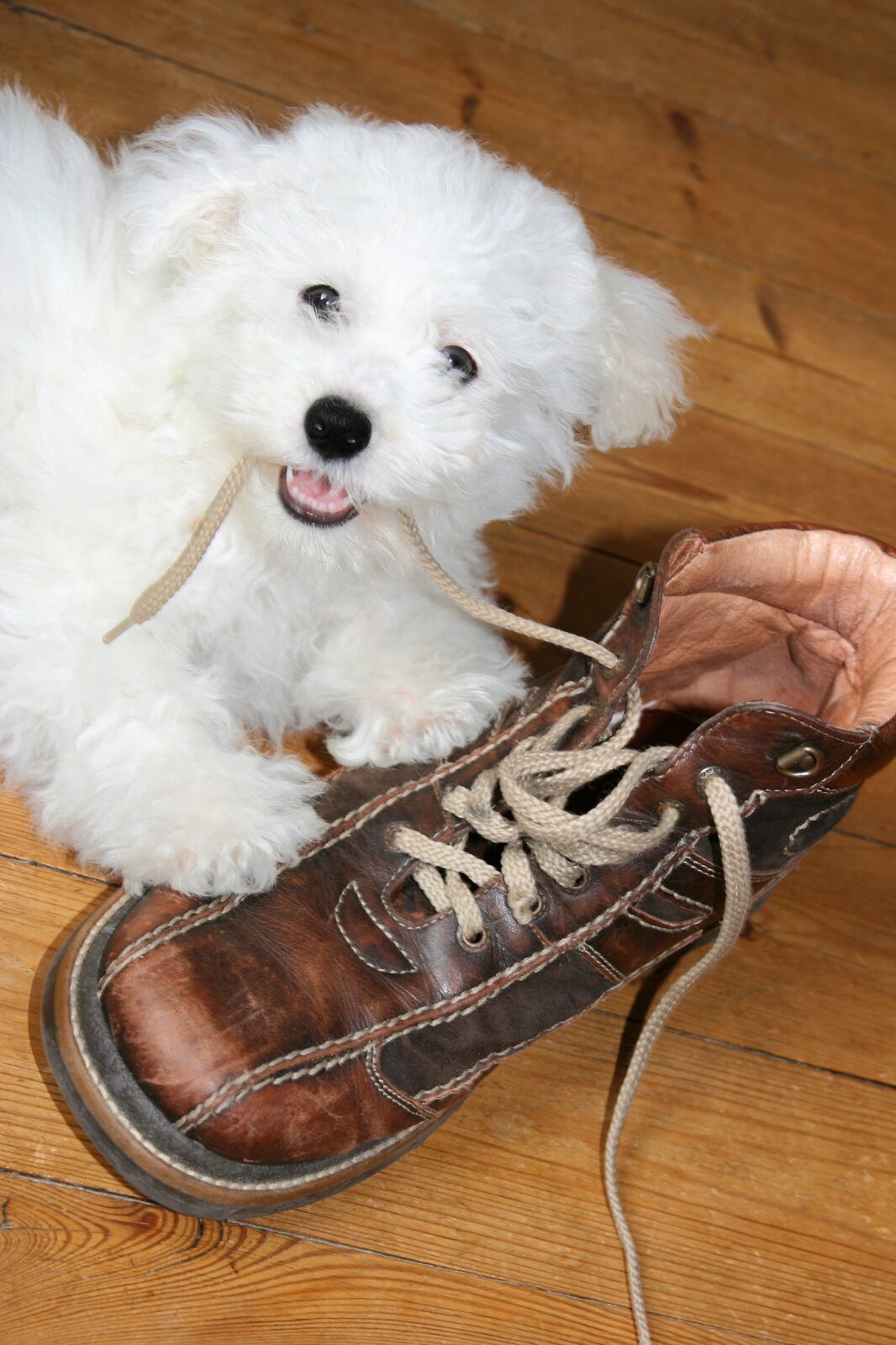
The majority of the above behaviors will begin to fade as your puppy develops, as long as you continue to teach and socialize him. Additionally, making sure to provide your pup plenty of exercise can make a big difference during this stage in their development. Daily exercise provides your pup an outlet to burn off excessive energy. It is also essential to keep training sessions going regularly. Latchkey Pets is the team to call if you’re in need of help with exercising your dog. Our daytime dog walking services are flexible, affordable, and reliable.
Finally, if your dog starts to show aggressive behavior, immediately contact your veterinarian, a dog behaviorist, or a qualified trainer.
Puppy Behavior Stages – Periods of Fear
Puppies go through, on average, four fear periods during their development. The fear periods are typically around the below ages:
- 8–10 weeks
- 4 and 6 months
- 9 months
- 14 and 18 months
Periods of fear are a critical time in puppy growth, and if not managed appropriately, you may end up with an aggression problem. When your puppy enters a fear stage, it will become terrified of something that it used to be okay with or ignore. The reaction may be bending down, shaking, back away, hiding, running away, or urinating submissively. Alternatively, your puppy may exhibit more apparent behaviors like snarling, barking, raising hackles, or baring teeth.
In any case, if you see one of these behaviors in your puppy in the age range listed above, you should stop taking them to new locations and introducing them to new things for about a week. And, if at all possible, avoid scheduling any veterinarian appointments during a fear phase.
Rough Play, Biting, and Nipping
When you begin puppy training, make sure to include some instruction that biting, mouthing, chewing, and rough play are all undesirable behaviors. Although this is natural behavior, It is vital to redirect your puppy’s behavior.
Inhibition is a puppy behavior in which the animal learns to limit the strength of its activities (bites, rough play, etc.). It is a crucial part of pet socialization because it teaches puppies what is too much versus tolerable. For example, puppies learn that biting each other too forcefully harms their siblings or mother and interrupts play by biting each other during play. They quickly learn to change their biting strength to a gentler bite, and play may resume. The same behavior occurs during hard play.
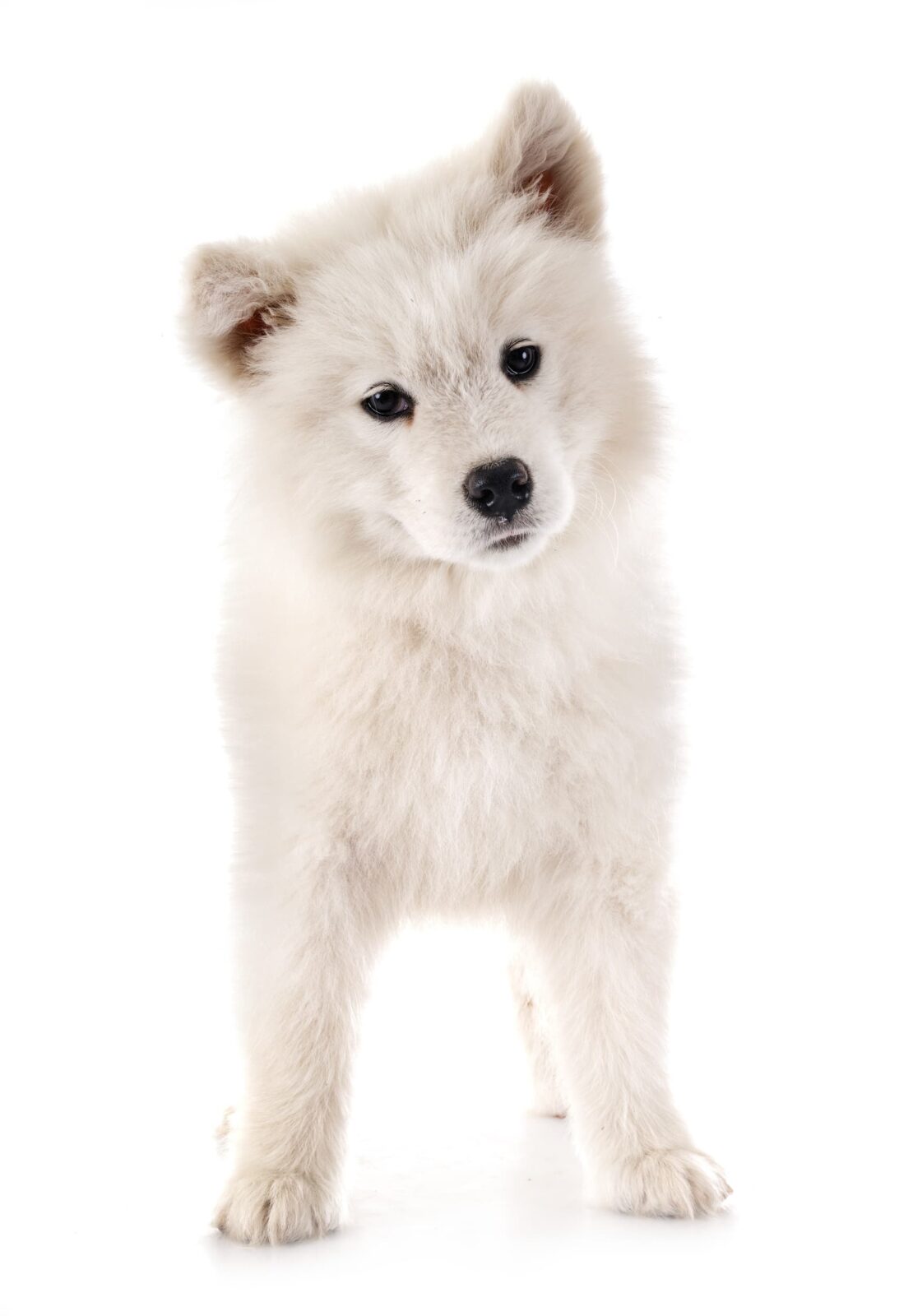
Invest in appropriate chew toys for your puppy to avoid becoming the chew toy. Puppies must learn to bite lightly before entering adolescence for their benefit and yours. Adult dogs constantly use their jaws to play with one another. A puppy that hasn’t learned biting inhibition may inadvertently hurt other dogs or people. When your puppy bites you for the first time, shout “OUCH!” loudly and leave the room for 1-2 minutes. By doing so, you are simulating the reaction of other puppies to a puppy that is biting too hard.
When you return, keep playing until he bites you again. Then, repeat the process if he bites again. Unfortunately, you will most likely need to repeat the process several times before your puppy learns.
A tiny percentage of puppies will become aroused by any verbal reaction to their biting, prompting them to bite harder. If your puppy exhibits this behavior, don’t say anything and leave the room for 1-2 minutes. Excessive mouthing in pups is frequently an indication of over-tiredness, and a nap in a crate, x-pen, or quiet room can be helpful.
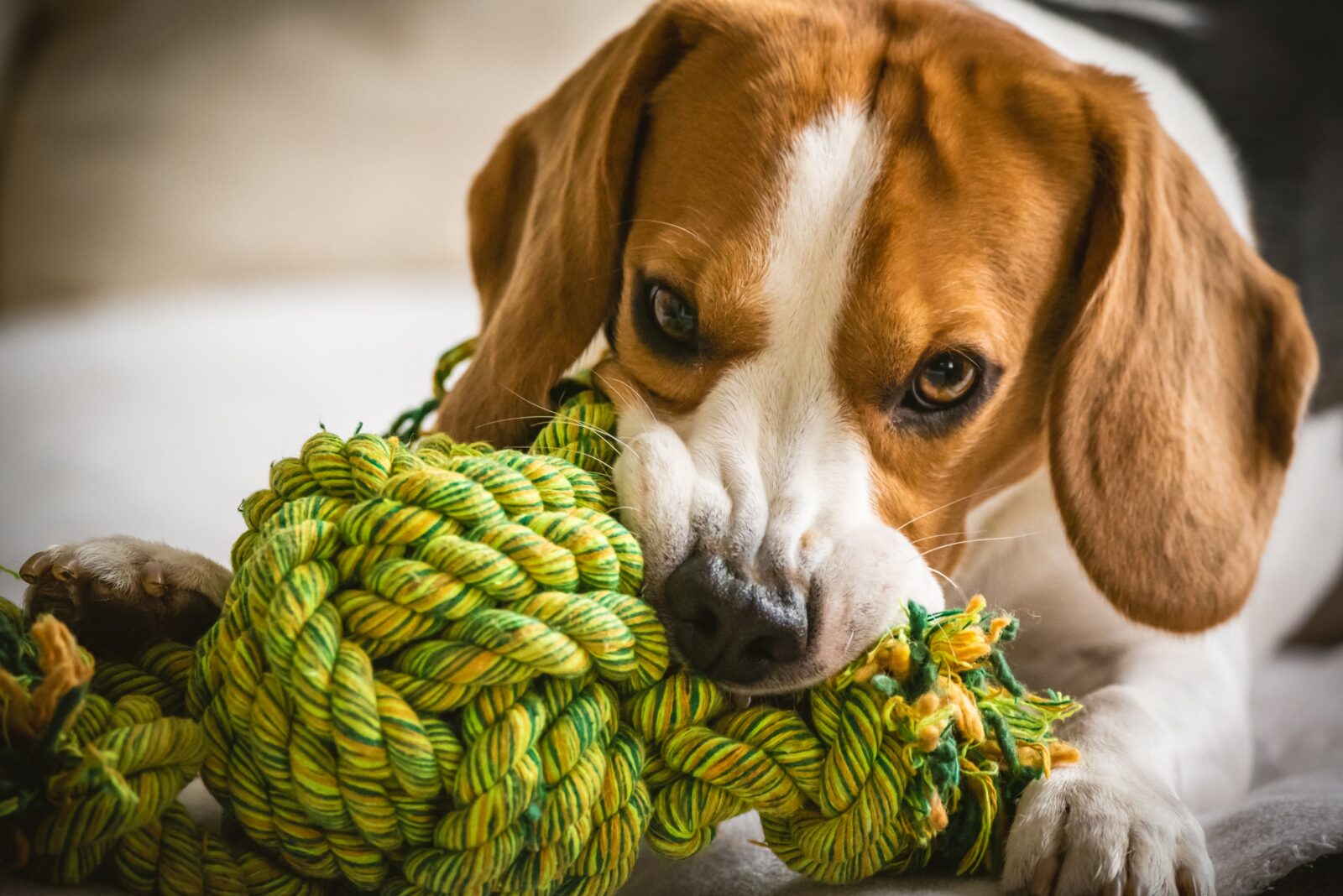
In Closing
Understanding puppy behavior stages can help you understand what to expect in terms of development. You’ll also be better prepared to offer your puppy the appropriate care at each stage. Finally, by giving a consistent schedule, good training, and lots of socialization and exercise, you increase the likelihood of producing a well-balanced, emotionally secure, and safe dog.
Latchkey Pets loves dogs in all the different stages of development, and we are here to help you know what to expect in the different puppy behavior stages as well as providing daytime dog walking services and vacation pet sitting services!
